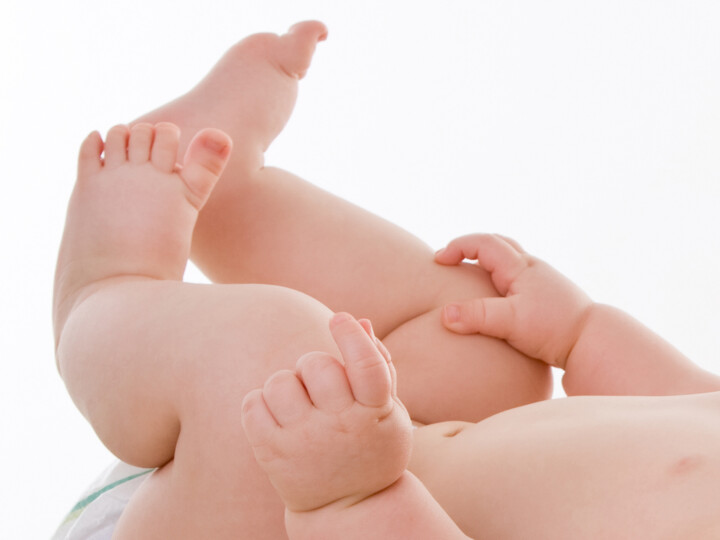Selecting the right pediatrician for your baby requires consideration and research. Once you’ve found the right one, it’s equally important to know the right questions to ask.
If you’re one of the many parents whose baby has tummy discomfort or diaper rash, discussing gut health with your pediatrician is a good place to start. Here are the top five questions to help guide the conversation (along with my answers!).
Question 1: How do I know if my baby is getting proper nutrition?
Pediatricians use growth charts as a way to ensure the baby is growing properly. While breastfeeding provides a complete source of nutrition, recent research highlights that nine out of ten U.S. babies lack the right type of good gut bacteria to maximize all the valuable nutrition present in breastmilk. This discrepancy can be attributed to modern medical interventions, such as increased C-sections, which can disrupt the natural balance of gut bacteria in infants.
To counter this, consider incorporating probiotics into your baby’s routine, like Evivo, starting as early as day one. Evivo contains a specific strain of good bacteria known as B. infantis EVC001. This strain works to increase the number of good bacteria and assists babies in building a robust gut microbiome right from the beginning. By fostering a healthy gut environment, you’re helping your baby absorb the nutrients they need for growth and development.
Question 2: How does gut health affect diaper rash?

I was surprised to learn that there is a relationship between gut health and a baby’s skin. An imbalanced gut can alter the pH of the stool, leading to more diaper rash. Optimizing your baby’s gut health through probiotics like Evivo can contribute to healthier skin and minimize the risk of diaper rash.
Here are some general tips to prevent and manage diaper rash:
- Frequent diaper changes: Change your baby’s diaper promptly to avoid prolonged exposure to moisture.
- Gentle cleansing: Clean your baby’s diaper area with gentle wipes or a damp cloth during each diaper change.
- Air time: Give your baby some diaper-free time to allow the skin to breathe and reduce moisture buildup.
- Barrier cream: Apply a protective barrier cream with 40% zinc oxide after diaper changes to protect the skin from stool and moisture; Use a THICK layer, like applying frosting to a cake!
- Proper-fitting diapers: Ensure that diapers are not too tight, as snug diapers can trap moisture and cause friction.
- Avoid harsh products: Avoid using harsh soaps, fragrances, or wipes with alcohol that can irritate the skin.
Question 3: How does gut health affect my baby’s sleep?
A healthy gut can have a positive impact on your baby’s sleep patterns. An imbalanced gut can lead to more gas, resulting in sleep disruptions and irritability. Increasing good bacteria with Evivo can help support a healthier digestive system which may result in less gassiness and better sleep quality.
Here are some general tips to promote better sleep for your baby:
- Establish a routine: Set a consistent bedtime routine to signal to your baby that it’s time to sleep.
- Create a comfortable environment: Ensure the sleep environment is quiet, dark, and at a comfortable temperature.
- Watch for sleep cues: Learn your baby’s cues for tiredness, such as rubbing eyes or yawning, and put them to sleep at the first sign.
- Encourage daytime activity: Engage your baby in play and interaction during the day to help establish a natural sleep-wake cycle. Limit nighttime stimulants: Avoid overstimulating activities close to bedtime, such as bright lights or loud noises. Use dim lighting and soft voices for nighttime feedings and diaper changes.
Question 4: What can I do if my baby has excessive gas?

Excessive gas can be distressing for babies, leading to discomfort. The following strategies can help minimize gas:
- Burping: Regularly burping your baby during and after feeding allows gas to escape the stomach, reducing discomfort.
- Gentle leg movements: Gently moving your baby’s legs in a circular motion, akin to riding a bicycle, can aid in releasing gas.
- Clockwise tummy massage: Massaging your baby’s tummy in a clockwise direction can help alleviate gas and promote digestion.
- Tummy time: Encouraging tummy time strengthens muscles, promotes round head shape, and also aids in releasing gas!
If your baby’s fussiness and gas persist, consult your pediatrician for further guidance.
Question 5: How is colic related to tummy troubles, and what can I do to help prevent it?
Colic may stem from an imbalance of gut bacteria, which increases gas producing bacteria and discomfort. Recent research highlights that introducing probiotics into your baby’s routine, such as Evivo, can have a positive impact on colic-symptoms. This balanced microbiome can help alleviate discomfort and reduce colic symptoms, leading to a happier baby and more peaceful days for both you and your little one.
Remember, there are no “silly” questions when it comes to your baby’s health. As pediatricians, we are here to help!

About the Author
Payal Adhikari, MD, Pediatrician
Dr. Adhikari is a board-certified pediatrician. Prior to medical school, Dr. Adhikari was a strategic consultant in the Healthcare division of Huron Consulting Group and later became a pediatrician in Chicago, IL. In addition to seeing patients, Dr. Adhikari enjoys spending time with her husband and two kiddos.




